Did you know that 67% of Canadians have given up on ever owning a home due to higher prices? A majority of these Canadians are first-time homebuyers. Purchasing your first home without financial assistance could be daunting, to say the least. The Federal Government’s First Time Home Buyer Incentive Program can help. The program can be very beneficial, but limited awareness has prevented many eager buyers from taking full advantage of it.
Our team of real estate experts looked into this matter, dug into the information, and created a complete guide for first-time home buyers about how and when to utilize this incentive. We have highlighted the whole process, eligibility criteria, how to pay back, benefits, and pitfalls.
It is a shared-equity mortgage that makes it affordable to purchase a home. The monthly mortgage payments are lowered without increasing the amount the home owners need to save for a down payment. The Government of Canada finances a portion of the homes of eligible Canadian home buyers through shared equity mortgages. The program is administered by Canada Mortgage and Housing Corporation (CMHC).
As this incentive targets a particular population group, let us understand who is a typical first-time home buyer in Canada:
The shared equity mortgage means that a part of your first home will be financed by the Canada Mortgage and Housing Corporation (CMHC). The federal government will lend you a certain amount according to your home’s purchase price. This will reduce the amount of your monthly and yearly home installments without increasing the amount of your down payment. You must occupy a home if you have applied for a shared equity loan.
A shared equity mortgage is different from a mortgage loan. This is how a traditional mortgage loan works:
This is how the shared equity mortgage works:
Let us explain this with an example. Suppose Ben (a hypothetical character) wants to buy his first home in Ottawa. The price of the home is $200,000 and Ben has to pay 20% in down payment. If he avails the First Time Home Buyer Incentive, this is how his finances will look like:
Original Home Purchase ($200,000) | Future Home Sale ($300,000) | |
Home value | $200,000 | $300,000 ($100,000 is appreciated) |
Ben | $20,000 (10%) | $110,000 ($300,000 sale amount – $30,000 paid to shared equity lender – $160,000 principal loan) |
Shared equity lender | $20,000 contribution (10%) | $20,000 principal loan + $10,000 (10% of appreciation) = $30,000 total payment |
Mortgage lender | $160,000 | $160,000 + interest |
Ben can benefit from this incentive in another way. He can lower his monthly installments by paying a higher down payment. Let us consider a scenario in which Ben has around 5% of the total cost to pay as a down payment. A lower down payment means a high monthly mortgage payment.
Home Cost: $200,000
Ben’s savings: $10,000
FTHBI: $20,000
Down payment: $30,000
Total Mortgage Loan: $170,000
A monthly mortgage with 25 years
amortization: $114
In this scenario, the higher down payment helps him avail lower mortgage default insurance premium. Home buying is now much more affordable for Ben.


The purpose of home buyer incentives is simple: make home-buying more affordable and convenient for first-time buyers. Although house prices softened during the last year, an Ipsos survey confirmed that house ownership is an unattainable dream for many Canadians. Similarly, another survey by Leger proves that affordability is a major hurdle in the way of many Canadians. This incentive makes home-buying more affordable for Canadians.
Besides the high cost of the property, fluctuating and unreliable state of the real estate market is another hurdle in the way of home ownership. Many home buyers fear their investment in case the market crashes. This incentive helps such home buyers. The equity lender shares the profit and loss. Depending on the rate of appreciation, the equity lender gets the profit and the buyer doesn’t have to pay a fixed interest rate.
A larger down payment means you are a less risky borrower. This translates into paying a lower monthly mortgage. You can save money every month and deal with any health or financial crisis without fearing a default.
There is 0% interest in FTHBI, unlike the other loans where you have to return the loan with interest on it. Interest-free loans like FTHBI don’t even add pressure on the monthly finances.
First Time Home Buyer Incentive also gives you the option of prepayment. If you want to pay back the loan even before 25 years without any prepayment charges. This prepayment facility of the incentive gives you the chance to exit the program.

You can avail of the first-time home buyer incentive only if you are one of the following:
You have to be a first-time buyer. If there are two buyers, one of them must be a first-time home buyer to avail of the incentive.
The annual income of the buyer should be less than $120,000.
First-time home buyers should have at least a 5% down payment for an insured mortgage.
A participant’s insured mortgage and the incentive amount cannot be greater than four times the participant’s qualified annual income. For example, if the qualifying income of a person is $100,000 annually, then the amount of the mortgage and the incentive must not be more than $400,000.
If your home fulfills the criteria below, it can qualify for FTHBI.


The percentage of incentive for a First-Time Home Buyer is either 5% or 10%. It depends on a few factors which include the type of property or home you are purchasing. The table below shows the percentage of incentives received by the first buyers according to the type of property.
| Type of Property | Percentage of Incentive |
| New Construction | 5% or 10 % |
| Re-Sale Home | 5% |
| Mobile Manufactured Home (new and resale) | 5% |
The First-Time Home Buyer Incentive helps qualified first-time home buyers reduce their monthly mortgage rate without adding to their financial burdens. If you are eligible for the First Home Buyer Incentive and qualify for it as well then buying a home would be affordable beyond thinking. This incentive is great for Canadians as it lowers their mortgage payments without increasing the down payment. The other good thing about this incentive is that the buyers are not supposed to pay any interest. The amount which needs to be paid back directly fluctuates with the value of the home. Contact one of the several reliable mortgage brokers in Ottawa for a quick consultation.
Are you looking forward to buying your new home? Do you want a place to call home? Connect with an expert realtor to find the best home.
first-time home buyer programs newly constructed home first-time home buyer incentive helps qualified first-time
Couples can always avail of the home buyer incentive if one of them is the first buyer regardless of the fact that the other partner is already a homeowner. They can still withdraw the amount of the incentive as long as they have not lived in the house owned by the other partner in the past four years. The first time home buyers also need to pay first-time home buyer’s tax credit (HBTC), which is part of Canada’s Economic Action Plan
The minimum credit score which is important for a house in Canada is 680. This score further depends and varies on the lender and according to the type of mortgage. It is always better to keep your credit score high, although some lenders try to keep it on the lower side. The optimal score when applying for a mortgage is 700 and above.
In 2023 Canada started its First Home Buyers Saving Program. In this program, all first-time home buyers under 40 can have a new savings account in which they can contribute up to $8,000 annually. This account is also tax-deductible just like a RRSP account.
Yes. If the payments are not made, co-signing a mortgage affects the credit score. As the credit reports of both parties are linked to the mortgage. This also signifies that if you or the primary owner make timely payments the credit score would further improve.
The Government of Canada has implemented new laws and rules related to property in Canada. These Acts help make homes more affordable for people living in Canada. Non-Canadians are not allowed to purchase any kind of residential property in Canada for two years according to the prohibition on the purchase of residential property by the non-Canadians Act.
In case of a divorce in Canada, both spouses have a 50% right on the marital property. Judges try to make the equal distribution of the property as sometimes it is not 50/50. The divorce attorney of the client also helps you in retaining the value of your property.
Labrosse Real Estate Group
4366 Innes Road
Ottawa, ON, K4A 3W3
Direct: 613-227-6409
Email: Hello@LabrosseRealEstate.com
Office: 613-590-3000
Copyright © 2022 NICK LABROSSE
Nicholas Labrosse Courtier Immobilier Inc
Website created by Designful


Find out how much your home is worth with Labrosse Real Estate Group’s free home value estimation service – get started now!